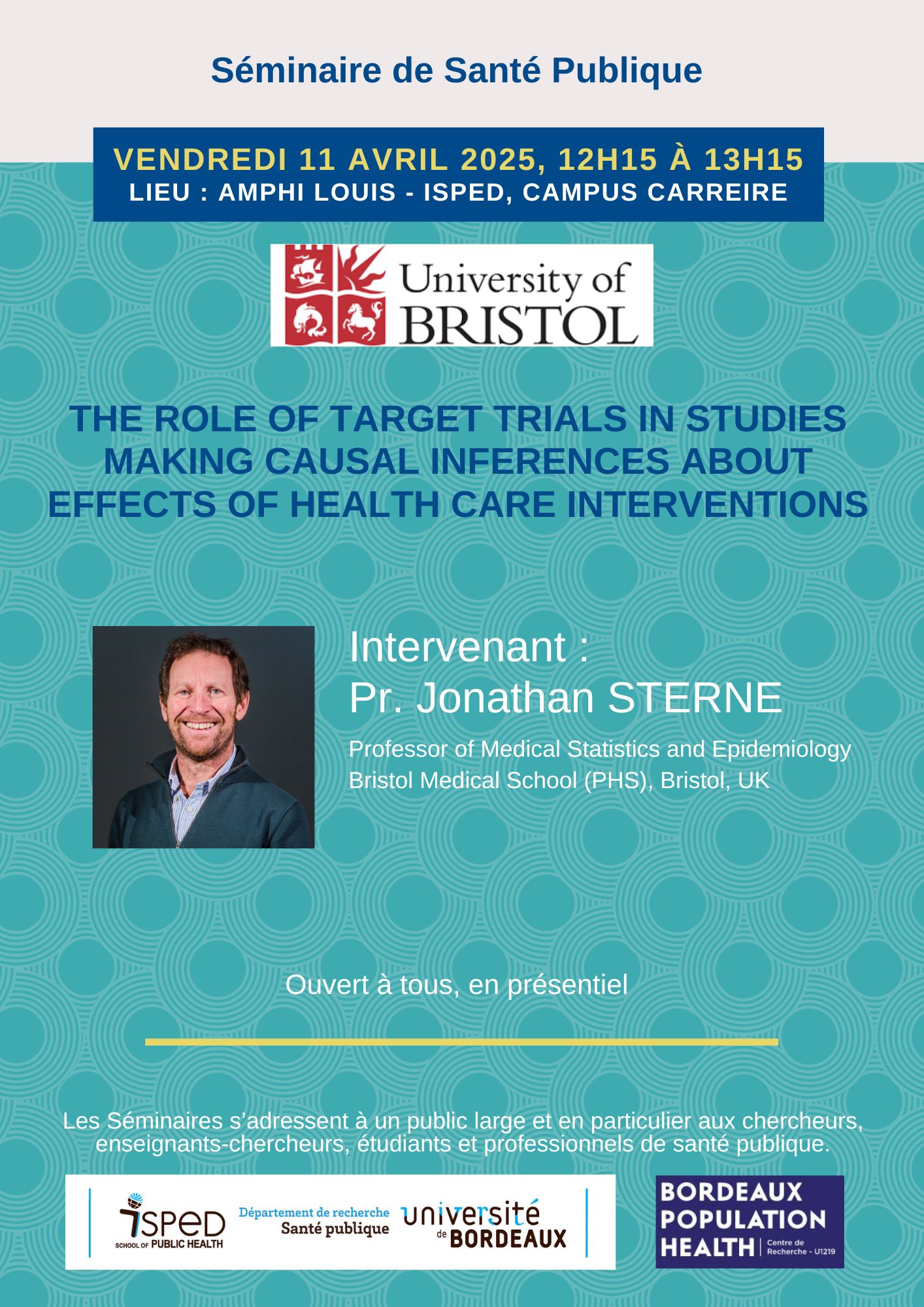Séminaire de Santé publique
- Vendredi 11 avril 2025 - 12h15 à 13h15
Amphi Louis - ISPED
Campus Carreire - université de Bordeaux
Ouvert à tous - En présentiel
Title: The role of target trials in studies making causal inferences about effects of health care interventions.
Speaker: Pr Jonathan Sterne
Professor of Medical Statistics and Epidemiology
Bristol Medical School (PHS), Bristol, UK
Lien_Bristol

Abstract:
In 2016 Hernán and Robins proposed that studies aiming to make causal inferences from observational data should aim to emulate the randomized experiment (the ‘target trial’) that would answer the question of interest. Specifying a target trial should help eliminate design-related biases by ensuring that start of follow-up is aligned with start of intervention, and avoid problems such as bias due to ‘immortal time’ when interventions cannot be distinguished at baseline. However, bias due to confounding remains a key concern for observational data analyses. I will describe how specification of a target trial can be used to clarify the question of interest, specify appropriate analysis methods, and identify biases including those that cannot be addressed using available data.
Bio :
Jonathan Sterne is Director of the NIHR Bristol Biomedical Research Centre, co-Director of Health Data Research UK South-West, and Professor of Medical Statistics and Epidemiology at the University of Bristol, UK. During the pandemic, he was co-lead of the UK’s Longitudinal Health and Wellbeing COVID-19 National Core Study, which linked population-scale electronic health records with highly characterised longitudinal population studies. This UK-wide collaboration produced research on COVID-19 vaccination and long COVID based on analyses of data on up to 55 million people, held within newly created Secure Data Environments. Jonathan is Principal Investigator of the ART Cohort Collaboration of HIV cohort studies, which works closely with the HIV-CAUSAL collaboration based at the Harvard School of Public Health.


